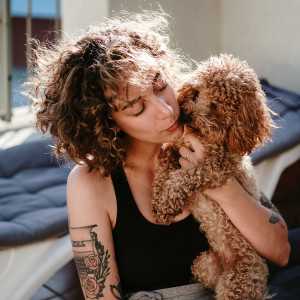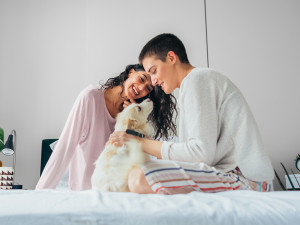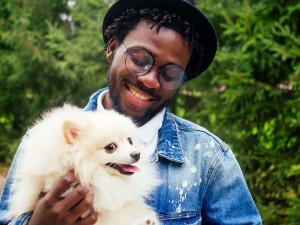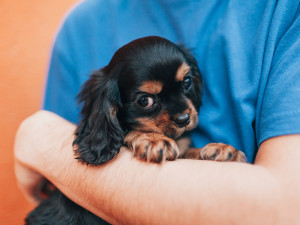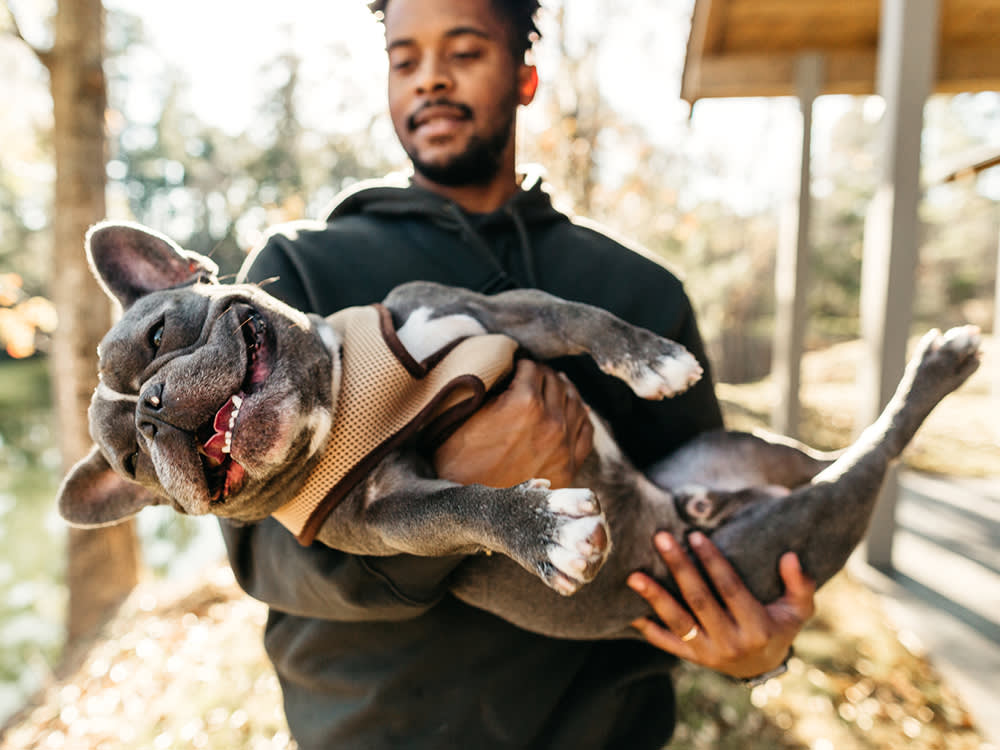
Share Article
In early January, the Pope criticized people who prioritize their pets as fostering a dynamic that “takes away our humanity.” “Dogs and cats take the place of children,opens in new tab” The Pope said, and this pet situation poses a threat potentially ruinous to civilization as we know it.
I wasn’t sure I disagreed! Civilization, as we know it, is horrible; and humanity, as it seems to be expressed by most humans, isn’t very cool at all. I like participating in devoted pet companionship, partially because it is an antidote to the cursed Anthropocene. So, on this and tattoos (cool/fineopens in new tab), the Pope and I are aligned.
Mostly I was surprised for the Pope to be so culturally astute. He and I seem to be on the same TikTok flow, where I see dozens of humans whose sons are their Dachshunds, whose children are their Corgi mixes. This morning, I saw a video of a Labradoodle criticizing his human grandmother, via voiceover, for asking when his human mother was going to have kids: “You look so dumb right now,” the Labradoodle says to his grandmother (because he was sitting right there).
A friend I know who wants kids — and a friend I know who has kids — both refer to their dogs as their son. It’s funny — my friends are all funny! — but it also communicates, through the metaphor of the human family, that this is a social dynamic that involves nurturing, responsibility, and famously unconditional love. Researchers have even foundopens in new tab that dogs are bonded to their people in the same way that infants are bonded to their parents. They found that dogs use their guardians as a secure base, just as children do.

While I have all of those things for the dog in my life, Finn, I’ve just never thought of him as my child. Maybe that’s because Finn was my partner’s dog first, so I always get to be the new, fun element. I also think there’s some lack of creative analogizing that prevents me from thinking of Finn as a kid. In terms of family dynamics, I think of Finn more like a little brother. He looks up to me, I sneak him treats, we have so much fun together, but sometimes he won’t LEAVE ME ALONE and then we’re fussy at each other.
Pet-as-child is a metaphor that communicates the weight of commitment that a pet needs. My person tells me that right when they first got Finn as a puppy, they met up with a bartender friend who had three dogs and two kids. My partner thought they’d hear about how puppies were so much easier than children, but the bartender — a classic expert in people — disagreed. Because dogs never grow up! Dogs can never pour their own water, they can never clearly verbalize that their stomach hurts, they can never open a door, they can never learn not to eat rubber bands. “Dogs are toddlers forever,” she said, in a line we quote to each other whenever he falls in love with a ball of tinfoil he wants to eat or snuggle with. “Toddler forever.”
More significantly, the legal status of pets is beginning to reflect this “toddlers forever” classification. Last fall, a New York law reconsidered the legal status of petsopens in new tab in cases of divorce or break-ups — and elevated their position to something more like a child. Previously, animals were categorized like property, to be “distributed equally,” as if the cat were a dining table or a condo. This new law gave judges discretion to consider the animal’s best interest, more like pets are sentient beings.
While terminology of pet-as-child seems most often to be a knowing little joke or precious exaggeration, the description of humans-as-pet-parents seems to be fairly nonchalant. I’ve never been to a vet that doesn’t use it. It’s a nomenclature that seems like a more accurate reflection of the dynamic of people and their pets. Even among people who refer to themselves as “pet owners,” the classification seems like a misnomer, because how many people think of their pet as an item of property? Certainly, pets are much more similar to family.
But again, I say, pets deserve an even better comparison than family! They don’t judge or disapprove or fault find or one-up or bicker, for a start. Maybe a future human kid of mine wouldn’t do those things, but I’m sure they would, because I do these things, and why would an offspring not inherit these strong doses of human personality? I’m sure they would also be curious and strong-willed and loyal and funny — traits embodied by Finn the dog. And whenever Finn exhibits impeccable preferences (no walking on soggy grass; maximum number of pillows), I feel a flash of filial admiration that I’ve raised my wonderful step-son in my image. But then, I remember he is a dog, and that’s the best part about him. I like animals too much to associate them with humanity.

Maggie Lange
Maggie Lange is a writer, editor, and columnist. Her work has been featured in New York Magazine, Vice, Guernica, GQ, Rolling Stone, Pitchfork, Elle, and Bon Appetit. She lives in Philadelphia with her favorite brindle boy, Finn.
Related articles
![A couple playing with their dog]()
The Dog Likes Me Better (and Other Petty Heart-Warmers)
The shallow, perfect bliss of being more loved by my partner’s dog.
![]()
To Cry Is Human—and Apparently Canine
Time to whip out The Notebook for a little doggie movie night.
![Man hugging his fluffy white dog happily]()
Chemistry Between People and Dogs Is Real (It’s Science)
How the “love hormone” oxytocin connects us with our pups.
![A man in a blue t-shirt holding a super cute puppy against an orange background]()
Baby Face: The Allure of Cute Dogs
The evolutionary advantage of Kindchenschema for animals.
